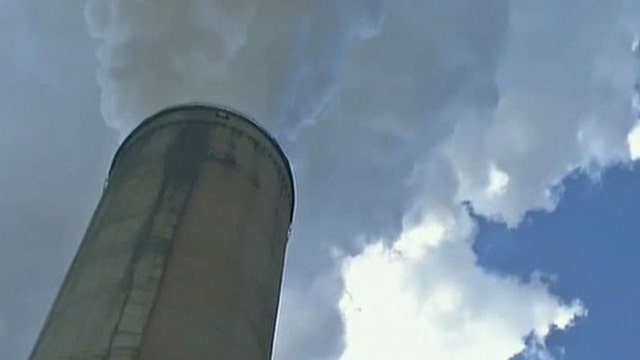A peer-reviewed climate change study released Wednesday by the Nongovernmental International Panel on Climate Change finds the threat of man-made global warming to be not only greatly exaggerated but so small as to be “embedded within the background variability of the natural climate system” and not dangerous.
Armed with the new findings, Republicans on the House Energy and Commerce Committee grilled administration environmental policy officials about the economic consequences of its aggressive regulatory crackdown on the fossil fuel industry.
The 1,000 page study was the work of 47 scientists and scholars examining many of the same journals and studies that the United Nations International Panel on Climate Change (UNIPCC) examined, producing entirely different conclusions.
"This volume provides the scientific balance that is missing from the overly alarmist reports from the IPCC, which are highly selective in their review of climate science," the authors write.
The study was done under the auspices of the Heartland Institute, which claims it "has no formal attachment to or sponsorship from any government or governmental agency."
The Heartland Institute’s president, Joseph Bast, said of the study, "The big issue in the global warming debate is how large is the human impact on climate. And this report shows that it is very small, that natural variability, the variability that's caused by natural cycles of the sun and other factors, way outweigh anything the human impact could have."
The report comes in advance of the expected release later this month of a new U.N. report on climate change. Leaked drafts of that report show surface temperature increases have been statistically insignificant for the last 15 years, and that Antarctic sea ice is increasing, not decreasing.
In addition, new satellite measurements of Arctic sea ice show it has increased this year.
At the House Energy and Commerce Committee hearing Wednesday, Republicans particularly wanted to know what President Obama planned to do to address those fossil fuel workers who've lost their jobs as a result of administration policy.
In a major address at Georgetown University last June, Obama promised there would be a special plan for those workers.
"So I would ask either one of you what are the special plans in the president's action plan to help address these people who are losing their jobs, " Rep. Ed Whitfield (R-Ky.) asked EPA Administrator Gina McCarthy and Energy Secretary Ernest Moniz.
"I'm not familiar with the details of those plans, but I am familiar from reading the climate action plan that the president sees this as both a challenge and an economic opportunity," McCarthy replied.
That exchange led to a testy retort by Ralph Hall (R-Tex.). "You got a better answer than I received from Mrs. McCarthy about a year ago before the science committee," Hall told McCarthy. "I may have asked you a question you didn't like and your answer was, ‘I'm not in the business of creating jobs.’”
Committee Democrats, along with McCarthy and Moniz, set out to counter Republican skepticism about the impact of climate change.
"The evidence is overwhelming and the science is clear," said Moniz. "The threat from climate change is real and urgent. The basic science behind climate change is simple. Carbon dioxide makes the earth warmer, and we are admitting more and more of it into the atmosphere."
Moniz added that any stabilization of surface temperatures in recent years was an indication of a "hiatus" of global warming, not an end to global warming.
Told of Moniz's remarks, astrophysicist Willy Soon, one of the NIPCC's leading scientists, reacted incredulously. "So tell us when is it going to rise again?” he asked. “This is a question that not only me, as a scientist, is asking , but all the lay persons should begin asking."
The Heartland Institute's Bast told Fox News that there are no climate models used by proponents of global warming that predict a lull in warming.
"Point to the model that predicted this hiatus," he said. "No increase in violent weather , no increase in hurricanes. All of this and we're still supposed to believe the models... models they picked because they supported their political interests, not because they represented good science."





